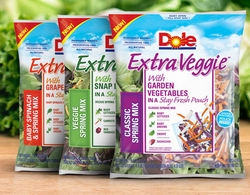
Dole executive vice president and general counsel Michael Carter said that the Ministry of Commerce of the People's Republic of China has officially approved the antitrust filing, with no conditions or requirements.
"We have now received all seven required regulatory approvals, and Dole expects to complete the sale within the next 30 days," Carter added.
In September 2012, Dole entered into an agreement to sell its worldwide packaged foods business and Asia fresh produce business to ITOCHU, as part of its plan to lower debt, pay deal-related expenses, and generate cost savings of $50m annually.
Dole's worldwide packaged foods business offers products such as fruit parfaits, canned pineapple juice, canned pineapple, healthy snack foods and frozen fruit, while its fresh produce business grows, sources and ships fresh fruit and vegetables, primarily in Asia.
In 2011, the combined businesses reported adjusted earnings before interest, taxes, depreciation and amortisation (EBITDA) of $190m, and revenues of approximately $2.5bn.
Following the completion of the deal, Dole Food Company will continue to own its fresh vegetables business and fresh fruit businesses in North America, Latin America, Europe and Africa, which together posted revenues of $4.2bn in fiscal 2011.
In addition, ITOCHU will have exclusive rights to use the Dole trademark on packaged food products worldwide and on fresh produce in Asia, Australia and New Zealand.
Meanwhile, Dole has reported fiscal 2012 results and noted that the results of its worldwide packaged foods and Asia fresh business that are being sold to ITOCHU will be marked as discontinued operations.
For the year ended 29 December 2012, Dole Food's revenues decreased 11% to $4.2bn, compared to $4.7bn in the previous year, mainly due to the divestitures of its fresh fruit subsidiaries in Germany and Spain.
Adjusted EBITDA decreased 26% to $146m, compared to $196m in the previous year, primarily due to lower pricing for bananas in North America as well as higher fruit costs in Europe, partially offset by lower shipping costs in Europe.





